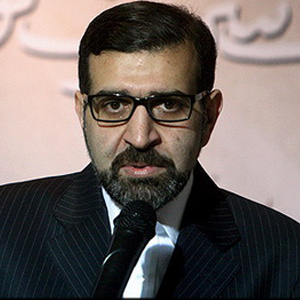A Critique of Ahmadinejad’s Diplomatic Initiatives

"We need to have constructive interaction with the world" Mir Hosein Musavi
"Our problems are because of unthoughtful remarks" Mehdi Karroubi
These remarks, made by two reformist candidates, clarify Iran’s current status in the international arena. To have an impartial account of Ahmadinejad’s conduct in foreign relations we should closely study his moves, manifested in initiatives some of which were unparalleled in post-revolution era, and recount their advantages and disadvantages for our national security and international face.
Taking courageous steps is a favored, at times necessary, measure in foreign diplomacy. However, the key point here is close and informed evaluation of the circumstances before taking any actual measures. Foreign diplomacy calls for this consideration more than any other domain since it is in close connection with national security and a single blunder could even jeopardize the territorial integrity of a country. Contemporary history of the world proves that how some reckless moves have set out wars. Iraq is a handy example for us. Saddam Hussein’ hasty attacks against Iran and Kuwait are still bringing suffer to the Iraqi nation.
The initiatives of the ninth [Ahmadinejad’s] administration in foreign diplomacy can be accounted as:
- Using unconventional language such as calling U.N sanctions ’torn papers’. Having a critical attitude towards the global order and speaking this criticism out is the right of every country, but using such rhetoric for our country, with its Iranian-Islamic civilization, is not appropriate and merely damages our reputation.
- Questioning Holocaust, which besides giving Zionists another pretext for their victimization had highly detrimental outcomes for our country. While even Palestinians do not resort to such tactics, the denial our subjected our country to further pressure from world powers. The reason for choosing the Holocaust-questioning tactic is yet unclear.
- Participating in regional and international conferences such as the GCC summit and Durban II that brought us nothing but loss. That doesn’t mean we should avoid global events –which is a must. Rather, it means that mere attendance is not an honor per se. Do we have to be proud of attending a conference that doesn’t mention the full title of Persian Gulf and releases an anti-Iranian resolution? If our attendance was fruitful why weren’t we invited the next year? Instead, our country was addressed with shameful rhetoric of the host country’s FM. Is it an honor to participate in Durban II conference and face insults that were in fact targeting the Iranian nation, not only the Iranian president?
- Sending unanswered letters to former U.S. president. Predictable. Why was the letter sent and why is Ahmadinejad showing his enthusiasm to debate with U.S. officials every time he talks to foreign journalists?
- The ninth government’s claim that it is prepared to handle global affairs. While we are facing U.N. sanctions and economic problems such talks aren’t taken seriously outside the country and appear as hot air.
It is not undeniable that the diplomatic apparatus has taken constructive steps to advance our national interests, but the reality is that these five initiatives have received negative regional and international response, even overshadowing the positive moves.
Self-possession in acting and speaking, shrewdness in dealing and avoidance of giving a handle to enemies are all our religious teachings. The fundaments of our foreign policy have been clarified by late Emam Khomeini and Supreme Leader Ayatollah Khamenei: we should shun danger, while standing firm on our beliefs. Even in dealing with our enemies we should not violate ethics; instead we should rely on our solid reasons. Ahmadinejad’s government hasn’t yet explained how these five initiatives accord with the three principles of dignity, wisdom and expediency.

